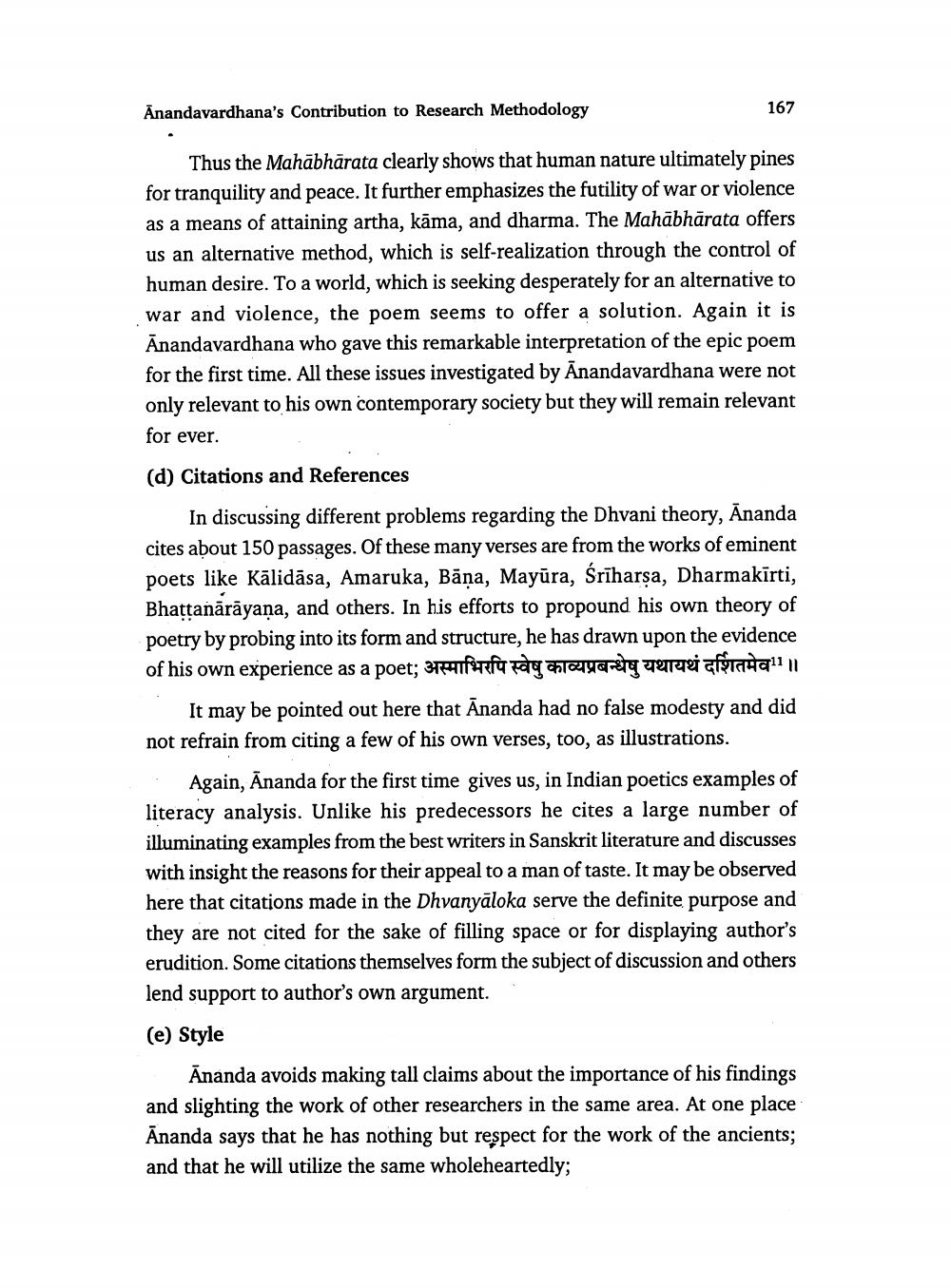________________
Anandavardhana's Contribution to Research Methodology
167
Thus the Mahābhārata clearly shows that human nature ultimately pines for tranquility and peace. It further emphasizes the futility of war or violence as a means of attaining artha, kāma, and dharma. The Mahabharata offers us an alternative method, which is self-realization through the control of human desire. To a world, which is seeking desperately for an alternative to war and violence, the poem seems to offer a solution. Again it is Anandavardhana who gave this remarkable interpretation of the epic poem for the first time. All these issues investigated by Anandavardhana were not only relevant to his own contemporary society but they will remain relevant for ever.
(d) Citations and References
In discussing different problems regarding the Dhvani theory, Ananda cites about 150 passages. Of these many verses are from the works of eminent poets like Kālidāsa, Amaruka, Bāna, Mayūra, Śrīharsa, Dharmakīrti, Bhattanārāyana, and others. In his efforts to propound his own theory of poetry by probing into its form and structure, he has drawn upon the evidence of his own experience as a poet; fu may calcuyarety Terrei afgha1111
It may be pointed out here that Ananda had no false modesty and did not refrain from citing a few of his own verses, too, as illustrations.
Again, Ananda for the first time gives us, in Indian poetics examples of literacy analysis. Unlike his predecessors he cites a large number of illuminating examples from the best writers in Sanskrit literature and discusses with insight the reasons for their appeal to a man of taste. It may be observed here that citations made in the Dhvanyāloka serve the definite purpose and they are not cited for the sake of filling space or for displaying author's erudition. Some citations themselves form the subject of discussion and others lend support to author's own argument. (e) Style
Ananda avoids making tall claims about the importance of his findings and slighting the work of other researchers in the same area. At one place Ananda says that he has nothing but respect for the work of the ancients; and that he will utilize the same wholeheartedly;




